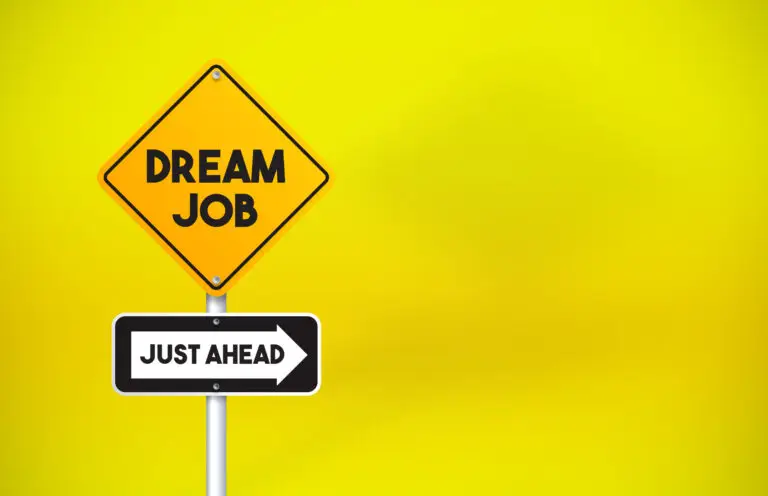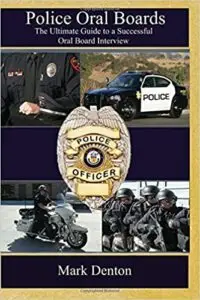
They want to identify and evaluate characteristics in you that would make you a good fit for a police department.
~ Barry M. Baker Tweet

Detective Lieutenant Barry M. Baker (ret.) is a 32 year veteran of the Baltimore Police Department.
The police oral interview is unique. You’re seeking a position that carries enormous power over others, and you have no prior experience. How do you overcome this disadvantage? Preparation is the key to success, and you have the Internet to aid you. Research the police department to which you’re applying and read everything you can find. Read the department’s annual reports and you’ll learn its structure and priorities.
Every new police officer begins as a patrol officer, and the police oral interview will pose questions related to that position. The interview questions won’t be limited to that area, but you should be familiar with things like probable cause. Without probable cause, you can’t arrest people, and arresting people will be part of your job. There’s plenty of information on this website to help you prepare.
The First Principle - Police Oral Interview
Don’t lie about anything and don’t obfuscate. A police oral interview board is not made up of idiots. Lying to the interviewers is like waiving a red flag, and they’ll spot a lie in a second. If the interview hits on a subject that could disqualify you, so be it. Lying won’t fix anything; whereas, truthfulness could gain you good will and save you. After all, nobody’s perfect.
Integrity is the single most important characteristic for a police officer, and truthfulness is its most important synonym. The police oral interview would be of no use if it was not designed to measure the applicant’s integrity. Keep in mind that a police officer is a fact finder, and you must apply that paradigm to every question. A police officer who acts only on the basis of facts will experience continued success.
Structure of the Police Oral Interview
You’ll be interviewed by one, two or three people. Small to medium sized departments with low turnover could afford you a one on one interview with the police chief. You would be fortunate to have the one on one, because the police chief will ultimately approve your hiring. Smaller organizations aren’t burdened by layers of administrative functions, and something like your police oral interview could avoid subjective obstacles.
My police oral interview was conducted by a sergeant and officer with the department’s recruitment section. The officer was seated across from me, but the sergeant moved around when he wasn’t standing over me. The interview was more of an interrogation, and the sergeant’s methods of intimidation were not lost on me. That was a very long time ago, and I doubt you’ll be subjected to any overt intimidation. You could experience an adversarial exchange with one or more of the interviewers. If that should happen, accept the fact that it’s probably your fault.
It’s Your Fault
I was hired at a time when being a college graduate ensured employment as a Baltimore police officer. An officer I knew personally not only had his Bachelor’s degree, but he’d gone on to law school earning his JD. The police commissioner had instituted a program where, after only one year of service, an officer with a degree could be designated as a police agent. The designation carried no rank, but it increased the officer’s salary over that of a top paid police officer. The only requirement was another police oral interview, and it was conducted by members of the command staff.
The officer attended his interview, and it was disastrous. Those of us who worked with the officer liked him, but we knew his opinionated nature was his Achilles heel. By the officer’s own admission, he’d been highly critical of the police commissioner and a number of his departmental policies. Needless to say, he did not receive the police agent designation. The officer, during the course of his career, would rise to the rank of lieutenant, but he went nowhere during the tenure of that police commissioner.
Keep Opinions to Yourself
The moral of this story should be obvious. During your police oral interview, keep your opinions to yourself. However, the interviewers are only human, and they will ask questions eliciting your opinions. This is where you exercise your diplomatic skills. An interviewer could ask you this question.
Question: “Do you think Stop and Frisk is a valid police practice?”
Answer: “I’ve read Terry vs Ohio, and I understand the technical aspects decided by the Court. However, I have no personal experience with Stop and Frisk.”
Your answer demonstrates your knowledge of Stop and Frisk, and it provides a reason for not offering a personal opinion. You have no idea of the pro or con positions of the interviewers regarding Stop and Frisk. If you were to voice a pro or con opinion, you could alienate one or more of the interviewers.
Years ago, police officers were a pretty homogenous group when it came to matters of law enforcement. It’s not like that today. Right or wrong, effective or ineffective, there are a lot of views swirling around in and out of police departments. You need to make yourself familiar with current hot button social issues as you prepare for your police oral interview.
Personal Appearance - Police Oral Interview
This really shouldn’t be a hard one to figure out. The moment you walk through the door for your interview you will make an impression. Your posture, personal grooming and attire will signal to the interviewers what is about to come. If you look good, you’ll be ahead of the game. If you give the impression that you put little effort into your appearance, you’ll start the interview with a deficit. You don’t want anything to distract from the purpose of the police oral interview, and the purpose is not judging your personal fashion choices. Dress conservatively.
Eye Contact
Police officers interview and interrogate people all the time, and they know the importance of eye contact. Your interviewers will judge your use of eye contact, because it’s a way to evaluate your level of self-confidence.
Don’t Over Think
The more you prepare for the police oral interview the better you’ll do, but don’t over think things. The interviewers know that becoming a police officer is new for you, and they don’t expect you to know everything. They want to identify and evaluate characteristics in you that would make you a good fit for a police department. As long as you don’t respond like my friend did in his police agent interview, you should do fine.
Related Content for Police Oral Interview
Resources

(ad) Police Oral Boards: The Ultimate Guide to a Successful Oral Board – is a comprehensive guide devoted solely to helping police officer candidates pass the oral board interview phase of law enforcement testing. The guide is loaded with dozens of the most commonly asked police oral board questions as well as great answers that are sure to win over your oral board panel. This is a priceless resource for law enforcement applicants as it gives the aspiring police officer an inside look at the oral board process and exactly what it takes to outshine the competition. Written by a veteran police officer, Police Oral Boards shows you exactly what it takes to score high on the oral board interview and get the job!
Advertisements


